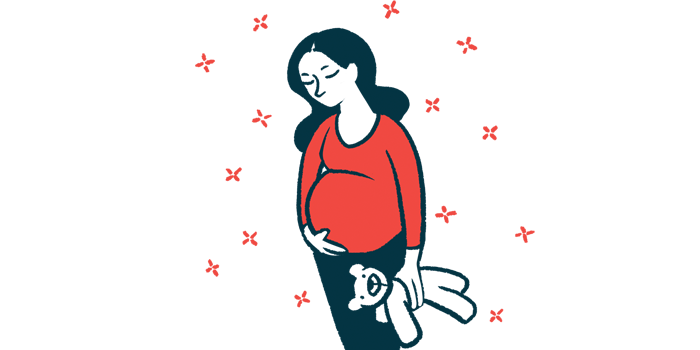Patients Who Stop Tysabri for Pregnancy at Higher Risk for Relapse

The majority of multiple sclerosis (MS) patients who stop taking Tysabri (natalizumab) before or when they become pregnant experience a disease relapse during pregnancy or shortly thereafter, according to a study out of Germany.
In more than one out of every 10 cases, relapses were so severe that patients experienced a meaningful worsening in disability at least one year after giving birth.
“The results of our study add relevant information on different maternal risks and may inform a distinct risk-benefit discussion between every neurologist and women on natalizumab who plan a pregnancy,” the researchers wrote.
The study, “Multiple Sclerosis Disease Activity and Disability Following Discontinuation of Natalizumab for Pregnancy,” was published in JAMA Network Open.
Tysabri is an antibody-based therapy that has been approved for relapsing-remitting MS (RRMS) in the European Union for more than 15 years. Although the therapy has proven effective at lowering the risk of relapses (times when symptoms suddenly worsen), patients who stop taking Tysabri often experience a relapse within a few months of discontinuation.
Pregnancy is sometimes referred to as a “natural treatment” for MS, as relapses tend to be less frequent during pregnancy, especially in the third trimester. However, pregnancy can pose challenges about whether or not to continue treatments that could affect fetal development.
There have recently been reports of MS patients who stopped Tysabri when they became pregnant, who then experience a worsening of disease.
“These cases are concerning, yet the magnitude of this risk is still unknown,” the researchers wrote.
To find out more, a team at the Ruhr University Bochum, in Germany, analyzed data from women who became pregnant between 2006 and 2018 and who had stopped Tysabri within two years of becoming pregnant or in the first trimester of pregnancy.
The analyses included 274 pregnancies in 255 women listed in the German MS and Pregnancy Registry, a voluntary registry that collected information from patients via regular telephone interviews.
Among the participants, the average age at conception was about 31. Most participants had no or relatively mild MS-related disability, with 23 reporting any difficulty walking — one of whom needed a cane, and one a wheelchair.
Most of the participants (68.98%) stopped taking Tysabri during the first trimester of pregnancy. The rest discontinued treatment, by a median of three and a half months, before getting pregnant.
At least one relapse was reported during 109 (39.78%) pregnancies, and 42 (15.33%) reported multiple relapses. Overall, there was a relapse during pregnancy or in the year immediately afterwards in 183 pregnancies (66.78%).
“In this cohort study, MS relapses during pregnancy or the first postpartum [after-birth] year following natalizumab cessation were exceedingly common,” the researchers wrote.
In 44 (16.05%) pregnancies, there was at least one severe relapse — defined as a worsening of at least two points on the Expanded Disability Status Scale, or a new worsening in walking ability. At one year after birth, there was significant relapse-related disability worsening in 29 (10.58%) pregnancies.
There also were three cases of “catastrophic” relapses, in which the women were rendered bedbound by the effects of the disease.
Analyses showed that the vast majority of persistent worsening disability was associated with a severe disease relapse. Worsening disability without a documented relapse was reported in eight pregnancies.
The researchers noted that patients who experienced a relapse had generally been on Tysabri for a shorter length of time before stopping — the median treatment duration was over four years for patients who did not relapse, compared to just over two years for those who relapsed.
Statistical analyses also showed that patients who stopped Tysabri during the first trimester were less likely to experience a relapse during pregnancy than those who stopped the treatment before getting pregnant.
About two-thirds of the participants reported breastfeeding their babies, and those who did not were generally faster to restart treatment with Tysabri or other MS therapies. Statistical analyses showed no difference in relapse risk during the first six months after birth among those who did or did not breastfeed. However, participants who restarted Tysabri soon after giving birth were less likely to have a relapse in the following year than those who did not restart treatment.
“Exclusive breastfeeding neither decreased nor increased the risk of postpartum relapses, even if it meant foregoing early resumption of disease-modifying treatments,” the researchers wrote.
A limitation of this study was that, since patients could elect to enroll in the registry, selection bias may have predisposed the study towards those with more drastic experiences. The team noted a need for further study of the risks of stopping Tysabri or other MS therapies during pregnancy.
Tysabri is sold by Biogen, which helped to fund the German MS and Pregnancy Registry alongside the German government and other pharmaceutical companies.
Of note, this study’s researchers have financial ties to pharmaceutical companies, including Biogen.








